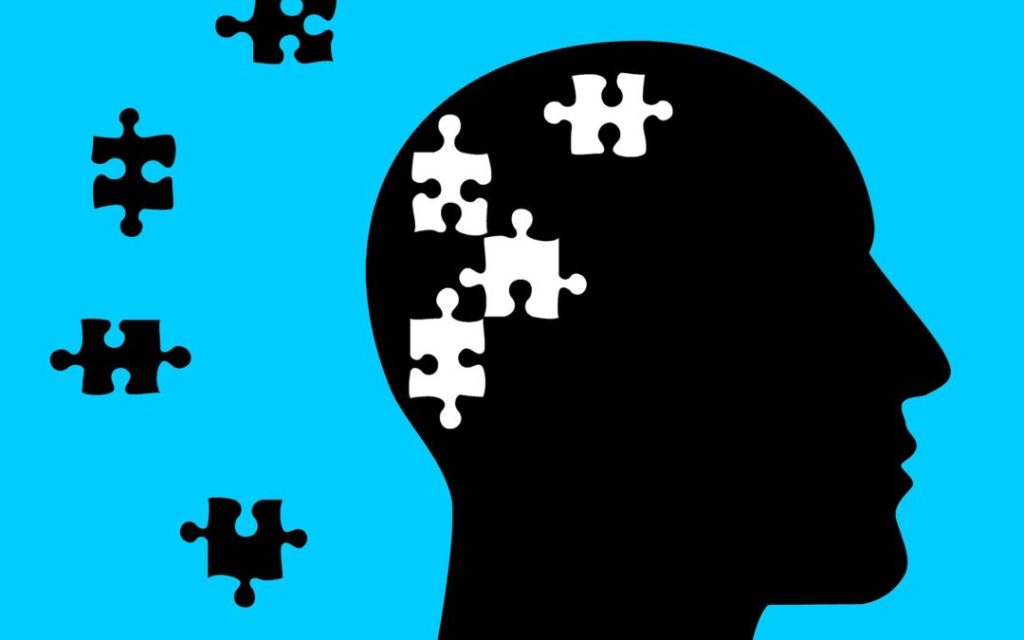In this blog post, we will discuss the different types and early warning signs of mental illness. Including the behavioral, emotional, and physical signs that may indicate someone is suffering from a mental disorder. We will also explore DSM and its diagnostic criteria, different neuroimaging techniques. As well as the various treatment options available for those who suffer from mental illness.
Contents
Understanding Mental Illness
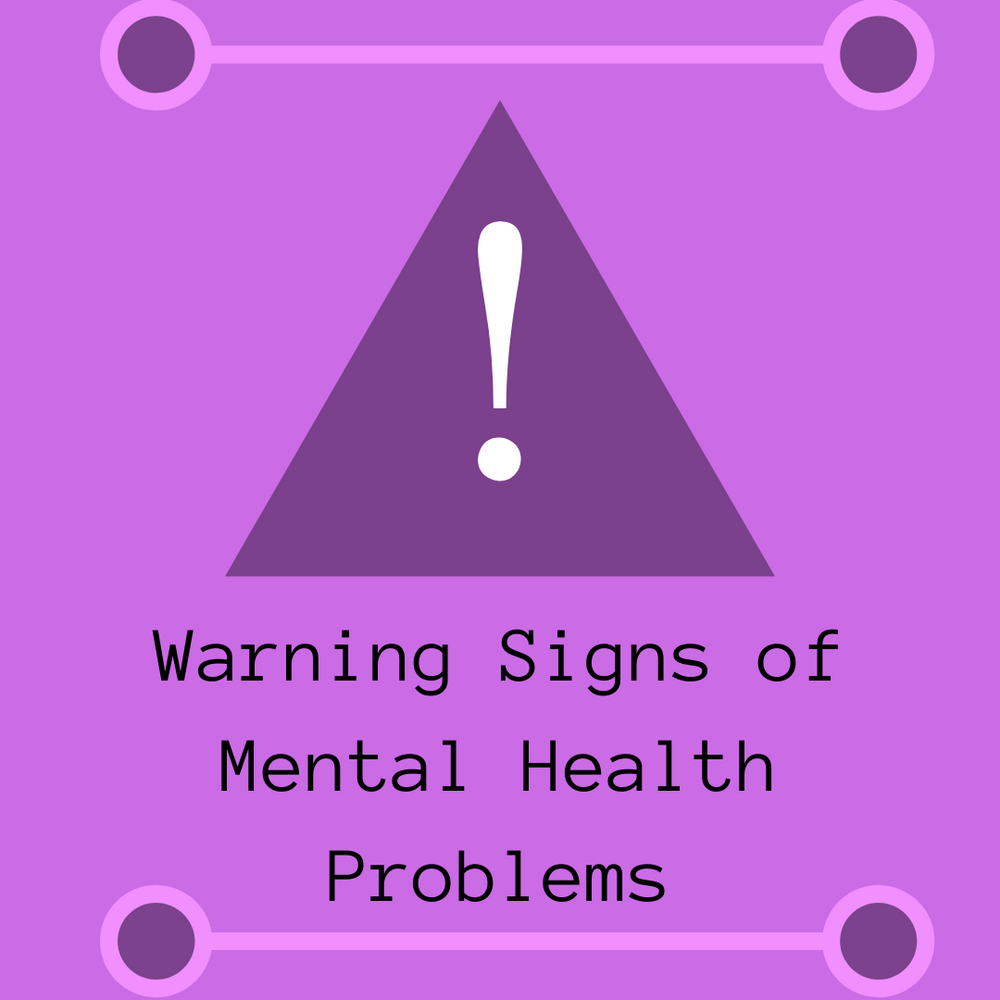
Mental illness is defined as a mental or behavioral disorder that causes significant distress, impairment in functioning, or increases the risk of suicide. Mental disorders are usually characterized by specific symptoms, which can vary from person to person.
Types Of Mental Illnesses
There are many different types of mental illness, and the symptoms can vary greatly from one person to the next. Some of the most common types of mental illness include:
- Anxiety disorders
- Bipolar disorder
- Depressive disorders
- Schizophrenia
- Personality disorders
Risk Factors Of Mental Illness
Several risk factors can increase a person’s chances of developing a mental illness. Some of the most common risk factors include:
Family history of mental illness: If you have a family member who suffers from a mental illness, you are more likely to develop one yourself.
Trauma or abuse: Experiencing trauma or abuse can increase your risk of developing a mental illness.
Substance abuse: People who abuse drugs or alcohol are at increased risk of developing a mental illness.
Poor physical health: Poor physical health can increase your risk of developing a mental illness.
Psychosocial stressors: Stressful life events, such as the death of a loved one or unemployment, can increase your risk of developing a mental illness.
Poor social support networks: If you don’t have strong social support networks, you are more likely to develop a mental illness.
Knowing Warning Signs Of Mental Illnesses
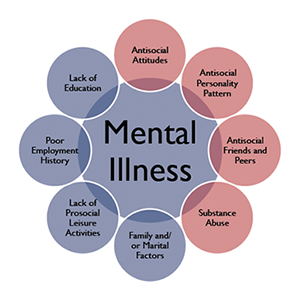
It is important to be aware of the warning signs of mental illness, as early diagnosis and treatment can often lead to better outcomes. Some of the most common warning signs of mental illness include:
Behavioral Signs Of Mental Illnesses
Some of the most common behavioral signs of mental illness include:
Changes in mood or behavior: If you notice a significant change in your loved one’s mood or behavior, it could be a sign that they are suffering from a mental illness.
Changes in appearance: Mental illness can often cause people to lose weight or gain weight, as well as changes in their hair and clothing styles.
Isolation: People who are suffering from a mental illness may start to isolate themselves from friends and family members.
Poor hygiene: People who are suffering from a mental illness may start to neglect their hygiene.
Difficulty concentrating: People who are suffering from a mental illness may have difficulty focusing on tasks or remembering things.
Angry outbursts: People who are suffering from a mental illness may experience frequent angry outbursts.
Emotional Signs Of Mental Illness
People who are suffering from a mental illness often experience a range of different emotions, including:
Depression: People who are under depression may feel sad, hopeless, and helpless.
Anxiety: Anxious People may feel nervous or tense all the time and have trouble sleeping.
Loneliness: Lonely People often feel isolated and withdrawn from others.
Frustration: Frustrated People may feel angry and irritable most of the time.
Guilt: People who feel guilty may feel like they are not good enough or that they have done something wrong.
Helplessness: People who feel helpless may feel like there is nothing they can do to improve their situation.
Physical Signs Of Mental Illness
People who are suffering from a mental illness may also experience several physical symptoms, including:
Fatigue: People who are mentally ill often feel very tired and drained.
Headache: People who are mentally ill may frequently have headaches.
Chest pain: Some people who are mentally ill experience chest pain.
Nausea: Many people who are mentally ill experience nausea.
Diarrhea: Some people who are mentally ill have diarrhea.
Physiological Changes In The Brain
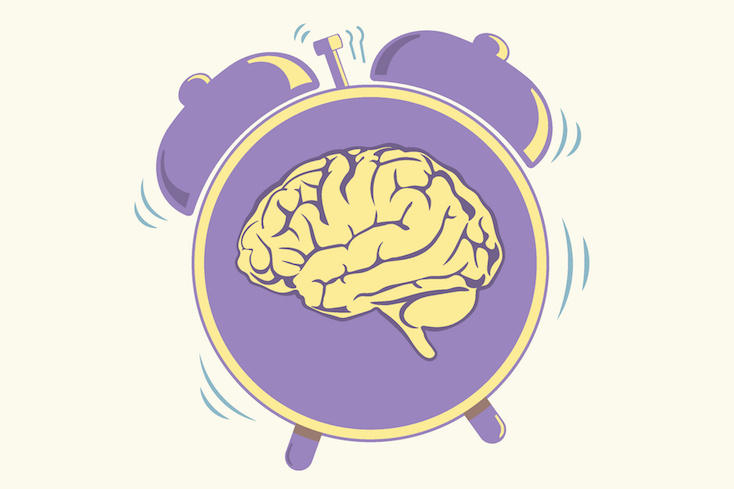
People who are suffering from a mental illness often have changes in their brain function. Several different tests can detect these changes. Some of the most common physiological changes that occur in the brain include:
Reduced activity in certain areas of the brain: People who are mentally ill often have reduced activity in certain areas of the brain.
Example: The area of the brain responsible for regulating emotions may be less active in people who are suffering from depression.
Reduced communication between different areas of the brain: People who are mentally ill often have reduced communication between different areas of the brain.
Example: The area of the brain responsible for movement may not communicate as well with the area of the brain responsible for emotions in people who are suffering from schizophrenia.
Increased activity in certain areas of the brain: People who are mentally ill often have increased activity in certain areas of the brain.
Example: The area of the brain responsible for regulating stress may be more active in people who are suffering from anxiety disorders.
Studying Physiological Changes In Brain
As mentioned earlier, mental health professionals use a variety of different tests to assess a person’s mental health. One test that is becoming increasingly popular is neuroimaging. It involves imaging the brain to look for changes in its structure or function.
Several different neuroimaging techniques help diagnose mental illnesses, including:
Positron emission tomography (PET): PET is a type of neuroimaging that uses radioactive materials to create images of the brain.
Computerized tomography (CT): CT is a type of neuroimaging that uses X-rays to create images of the brain.
Electroencephalogram (EEG): EEG is a test that measures the electrical activity of the brain. This can be used to detect changes in brain function. Such as increased or decreased activity in certain areas of the brain.
Single-photon emission computed tomography (SPECT) scan: SPECT is a type of neuroimaging that uses radioactive materials to create images of the brain. This test is often used to diagnose mental illnesses, such as schizophrenia.
Functional MRI (fMRI): fMRI is a type of MRI that measures changes in blood flow in the brain. This can be used to detect increased or decreased activity in certain areas of the brain.
Magnetic resonance imaging (MRI): MRI is a type of neuroimaging that uses a strong magnetic field and radio waves to create images of the brain.
NOTE: Mental health professionals are increasingly using neuroimaging techniques to diagnose mental illnesses. As they can provide a more detailed picture of how a person’s brain is functioning. This information can help determine the best course of treatment for a person with a mental illness. Each of these techniques has its strengths and weaknesses, and the type of neuroimaging test that is best for you will depend on your individual needs.
DSM And Mental Illnesses
The Diagnostic and Statistical Manual of Mental Disorders (DSM) is a manual published by the American Psychiatric Association that lists all of the mental disorders and their diagnostic criteria. The DSM is used by psychiatrists and other mental health professionals to diagnose mental illness.
DSM Diagnostic Criteria
The DSM is set up in a way that allows mental health professionals to make a diagnosis by considering five different domains:
- A person’s symptoms
- The duration of the symptoms
- The extent to which the symptoms are causing distress or impairment in functioning
- The presence of any associated features (such as hallucinations or delusions)
- The use of drugs or alcohol to relieve symptoms
The diagnosis of mental illness can be quite complex, and it is usually the job of professionals such as psychiatrists or psychologists. To be diagnosed with a mental illness, a person must meet the criteria outlined in the DSM.
Importance Of Taking Mental Health Test
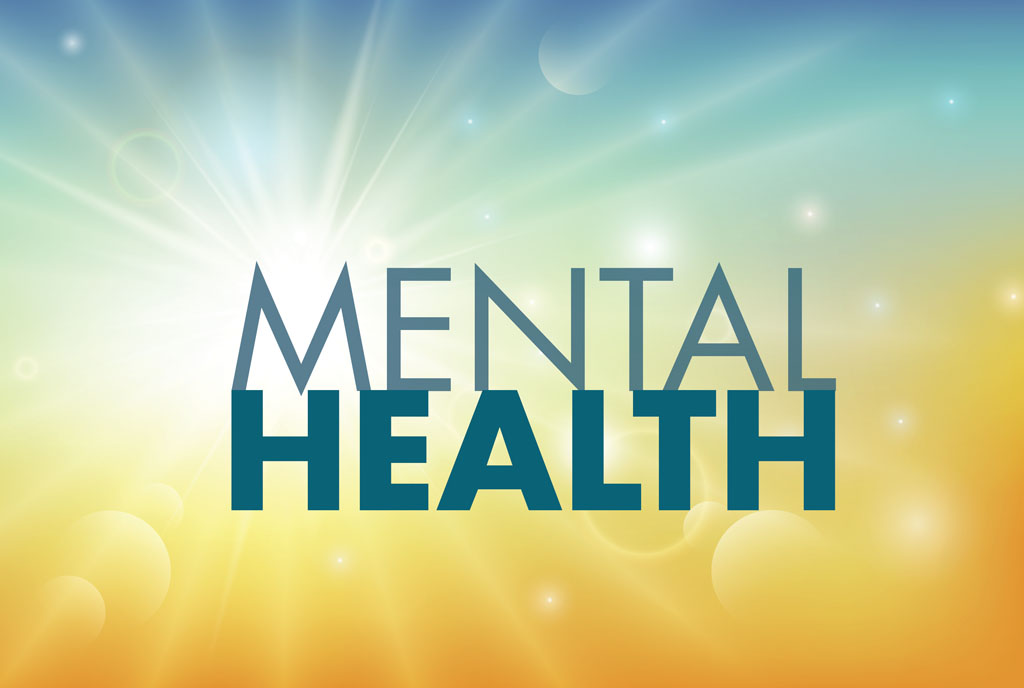
People need to take a mental health test if they are experiencing any of the warning signs of mental illness. Taking a mental health test can help to determine whether or not a person is suffering from a mental illness. Furthermore, it can provide information about the best course of treatment.
If one could learn to identify the early warning signs of mental illness in oneself or a loved one, it may be possible to get help before the illness becomes too severe. By getting treatment for a mental illness early on, it is often possible to prevent further deterioration of the person’s health. Furthermore, timely intervention can improve their quality of life.
Types Of Mental Health Tests
There are several different tests and measures that mental health professionals use to assess a person’s mental health, including:
The diagnostic interview: This is a conversation between the mental health professional and the patient in which the professional will ask about the patient’s symptoms and history of illness.
Mental status examination: This test involves assessing a person’s mental state by observing their behavior and mood.
The Beck Depression Inventory: This test is used to measure a person’s level of depression.
The Minnesota Multiphasic Personality Inventory: This test is used to assess a person’s personality traits.
The Wechsler Adult Intelligence Scale: This test is used to measure a person’s intelligence.
The Millon Clinical Multiaxial Inventory: This test is used to assess a person’s mental health status.
The Stanford-Binet Intelligence Scale: This test is used to measure a person’s intelligence.
The Schizophrenia Cognition Battery: This test helps assess the cognitive abilities of people who are suffering from schizophrenia.
The Woodcock-Johnson III Tests of Achievement: This test is used to assess a person’s academic achievement.
NOTE: The type of test that is best for you will depend on your individual needs.
Mental Health Test Tips
When taking a mental health test, it is important, to be honest, and to answer all of the questions truthfully. It is also important to take your time and to read each question carefully. If you are not sure how to answer a question, be sure to ask the mental health professional who is administering the test.
It is also important to keep in mind that there is no right or wrong answer to any of the questions on a mental health test. The goal of taking a mental health test is to provide the mental health professional with as much information as possible about your symptoms. This information will further help them track how those symptoms are affecting your life.
Furthermore, it can be helpful to have someone else help you with the test or to review the questions before you begin. This will ensure that you understand what the question is and will allow you to provide accurate responses.
NOTE: It is also important to remember that the test is not a substitute to diagnose mental illness, but rather to help identify areas of concern.
Coping With Mental Illnesses Symptoms
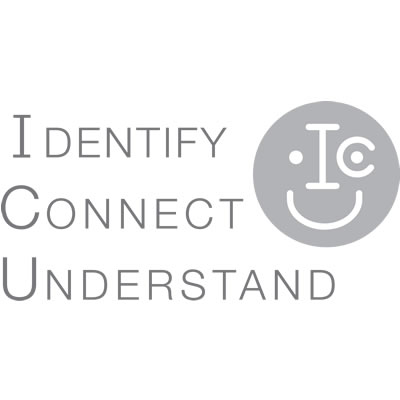
There are several different ways that people can cope with mental illness, including:
Talking to a professional: Talking to a professional is often one of the best ways to get help for mental illness.
Taking medication: Some people find that taking medication helps them manage their mental illness.
Participating in therapy: Therapy can be a helpful way for people to learn skills to manage their mental illness.
Eating healthy: Eating healthy can help improve a person’s mood and overall well-being.
Exercising: Exercising regularly can help improve a person’s mood and energy levels.
Resting: Getting enough rest is important for people who are struggling with mental illness.
Treatment Options
There are several different treatment options available for people who are suffering from mental illness, including:
Psychotherapy: Psychotherapy is often one of the first treatments that professionals recommend for mental illness. It involves meeting with a therapist to discuss issues and problems.
Medication: Several different medications are helpful to treat mental illness. For example, antidepressants help with depression.
Hospitalization: In some cases, hospitalization may be necessary to ensure the safety of the person with mental illness.
Support groups: Support groups can be a helpful way for people to connect with others who are struggling with similar issues.
Talking to a Professional
If you are concerned about your mental health or the mental health of someone you know, it is important to talk to a professional. Several different professionals can help, including:
Psychiatrists: Psychiatrists are doctors who specialize in treating mental illness.
Clinical psychologists: Clinical psychologists are therapists who have training in treating mental illness.
Counselors: Counselors are professionals who provide counseling services for people with mental illness.
Therapies For Mental Health Illness
There are several different therapies that can be used to treat mental illness, including:
Cognitive-behavioral therapy: Cognitive-behavioral therapy is a type of therapy that helps people change the way they think and behave.
Dialectical behavior therapy: Dialectical behavior therapy is a type of therapy that helps people manage their emotions and relationships.
Interpersonal therapy: Interpersonal therapy is a type of therapy that helps people deal with their relationships.
Family therapy: Family therapy is a type of therapy that involves family members working together to help the person with mental illness.
Behavioral therapies: Behavioral therapies involve changing the way a person behaves to improve their mental health.
Mindfulness-based therapies: Mindfulness-based therapies involve being present at the moment and paying attention to one’s thoughts and feelings.
Exposure therapy: Exposure therapy involves exposing a person to their fears or phobias in a safe and controlled environment.
EMDR: EMDR is a type of therapy that uses eye movement and other activities to help a person process their memories.
Pharmacotherapy: Pharmacotherapy is the use of medication to treat mental illness.
NOTE: Not all therapies are the same and not everyone will benefit from every type of therapy. It is important to find a therapist with who you feel comfortable and who can help you meet your goals. You may want to ask your doctor for a referral or do some research online to find a therapist who meets your needs.
Stages Of Mental Health Conditions
Not everyone who experiences a mental health condition will experience the same symptoms or go through the same stages. However, there are generally four stages that people go through when they are struggling with a mental illness:
- The first stage is denial. In this stage, people may not even realize that they have a mental illness and may refuse to seek help.
- The second stage is awareness. In this stage, people begin to realize that they have a mental illness and may start to seek help.
- The third stage is acceptance. In this stage, people come to terms with their mental illness and work to get better.
- The fourth stage is recovery. In this stage, people can live productive lives despite their mental illness.
Experts’ View on Diagnosing Mental Illness
There is no one “right” way to diagnose mental illness, and different professionals may use different methods and tests to assess a person’s mental health. However, some general guidelines that most professionals refer to in the field.
When diagnosing mental illness, clinicians typically look for:
- A history of mental illness
- The presence of symptoms
- The impact of the symptoms on the person’s life
Case Study
To better understand how mental health professionals diagnose mental illness, let’s take a look at an example.
John is a 30-year-old man who has been struggling with depression for the past year. He has difficulty getting out of bed in the morning, he feels hopeless and helpless. And he has lost interest in activities that he used to enjoy. John’s symptoms have had a significant impact on his life. Consequently, causing him to lose his job and withdraw from friends and family.
Based on John’s symptoms, a mental health professional would likely diagnose him with depression. This diagnosis is based on John’s history of mental illness, the presence of symptoms. As well as the impact that they have had on his life.
Conclusion
Mental illness can be a very serious problem. And it is important to get help if you are experiencing any of the warning signs. There are many different types of mental illness. And each one requires a treatment plan.
If you are unsure about whether or not you are suffering from a mental illness, it is best to talk to a professional. They will be able to give you an accurate diagnosis and recommend the best course of treatment for you.
Mental health professionals such as psychiatrists and psychologists are experts in diagnosing mental illness. They use a variety of tests and measures to assess a person’s mental health, including the DSM.
A Word From Therapy Mantra
Your mental health — Your psychological, emotional, and social well-being — has an impact on every aspect of your life. Positive mental health essentially allows you to effectively deal with life’s everyday challenges.
At TherapyMantra, we have a team of therapists who provide affordable online therapy to assist you with issues such as depression, anxiety, stress, workplace Issues, addiction, relationship, OCD, LGBTQ, and PTSD. You can book a free therapy or download our free Android or iOS app.
